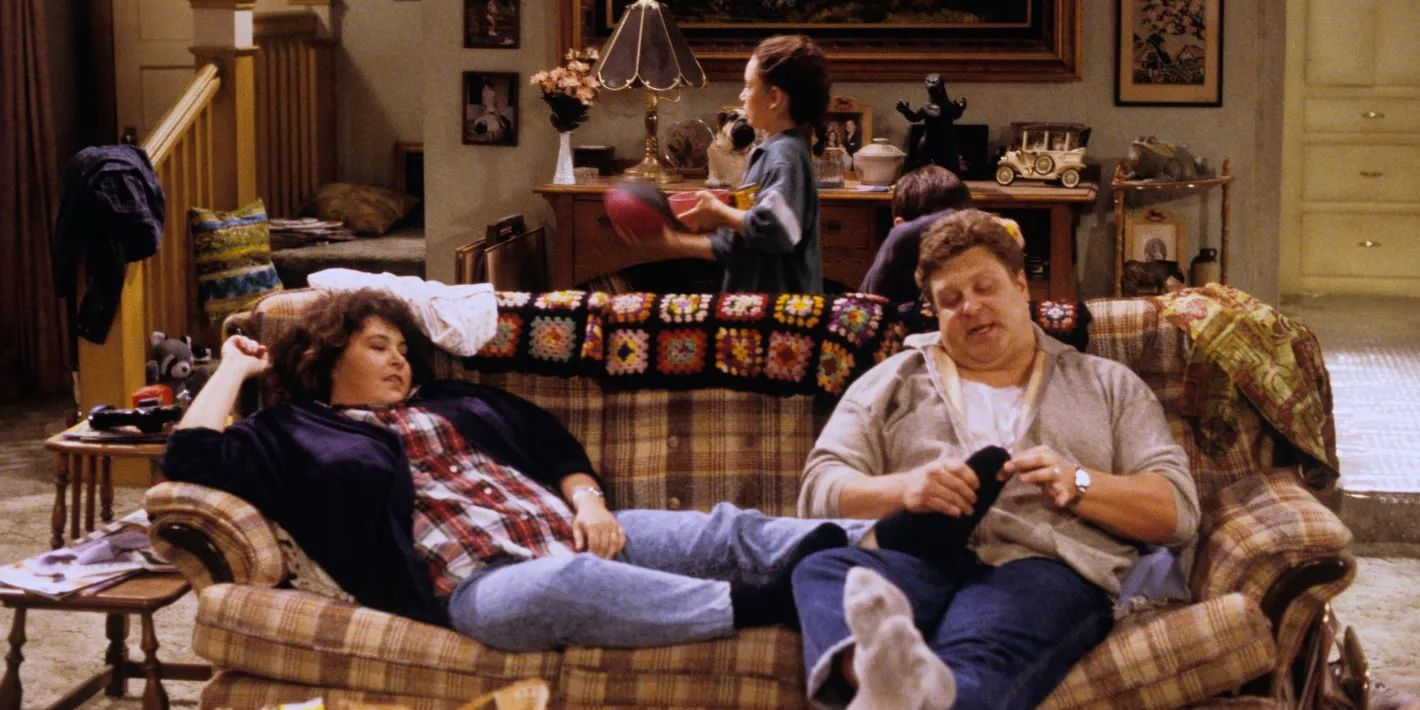
Introduction: Few TV shows have left as lasting a mark on popular culture as Roseanne. Airing from 1988 to 1997 and returning for a reboot in 2018, the show became a phenomenon that changed the landscape of television comedy. Known for its fearless tackling of real-world issues, its sharp wit, and its iconic characters, Roseanne was more than just a sitcom—it was a voice for working-class America.
But what makes Roseanne so iconic? And why does it still resonate with fans after all these years? Let’s dive into the untold truth of the show, examining how it broke barriers, sparked controversy, and became an unforgettable cultural touchstone.
Breaking Stereotypes: A New Kind of Family Sitcom When Roseanne premiered in 1988, it introduced a groundbreaking portrayal of a working-class family. Unlike the affluent families depicted in shows like The Cosby Show or Family Ties, the Conners were struggling to make ends meet. The Conner family, led by Roseanne Barr as the matriarch, had to deal with issues such as financial hardship, weight problems, and family tensions—things most viewers could identify with.
What made Roseanne revolutionary was its refusal to sugarcoat these struggles. It portrayed a family that was far from perfect but incredibly relatable. This raw, honest depiction of middle-class life helped Roseanne carve out its place as an iconic series in TV history.
Controversial and Courageous: Breaking the Rules One of the defining characteristics of Roseanne was its willingness to take on controversial topics. The show didn’t shy away from tough issues like abortion, same-sex relationships, and even politics. Roseanne Conner was often at the center of these storylines, challenging societal norms and forcing viewers to confront uncomfortable realities.
One episode that stands out is when Roseanne’s character revealed her support for a woman’s right to choose in the face of a tough decision. At the time, such a candid discussion on primetime television was unheard of. Yet, the show’s ability to handle these topics with humor and empathy made it a voice for a generation of viewers who often felt underrepresented in mainstream media.
The Characters: Relatable, Real, and Revolutionary The strength of Roseanne lies in its characters. Roseanne Conner, played by Roseanne Barr, was an unconventional TV mother—sarcastic, sharp, and unapologetically real. She didn’t fit into the typical mold of TV moms at the time, and that’s exactly what made her so special. Roseanne was tough but loving, a working-class woman who wasn’t afraid to call it like it was.
Her husband, Dan Conner (played by John Goodman), was equally complex. Unlike the stereotypical “big, strong man” of the 1980s, Dan was emotionally intelligent, supportive, and equally prone to making mistakes. Their relationship was a beautiful portrayal of a partnership based on mutual respect, love, and humor.
And then there were the kids—Becky, Darlene, and DJ—each of whom represented a different facet of adolescence and family life. The kids weren’t perfect, but they were real. They fought with their parents, dealt with personal challenges, and grew up before the viewers’ eyes. Their relatability made the show a reflection of real family dynamics.
A Lasting Legacy Roseanne‘s influence continues to be felt today, from its impact on other sitcoms to its influence on social media conversations. The show’s fearless approach to addressing social issues, combined with its unforgettable characters, made it a trailblazer in TV history.
In the rebooted series, which brought back many of the original cast members, Roseanne revisited some of these same issues but with a new perspective. Despite its controversial end, the reboot reinforced the importance of the show in the cultural conversation, demonstrating that Roseanne wasn’t just a product of its time—it was ahead of its time.
Conclusion: Roseanne is a cultural icon because it dared to be different. It showed viewers that real families—messy, flawed, and full of heart—deserve to be represented on screen. Whether you loved it or hated it, Roseanne was unafraid to challenge the norms, and that boldness is what made it unforgettable.
